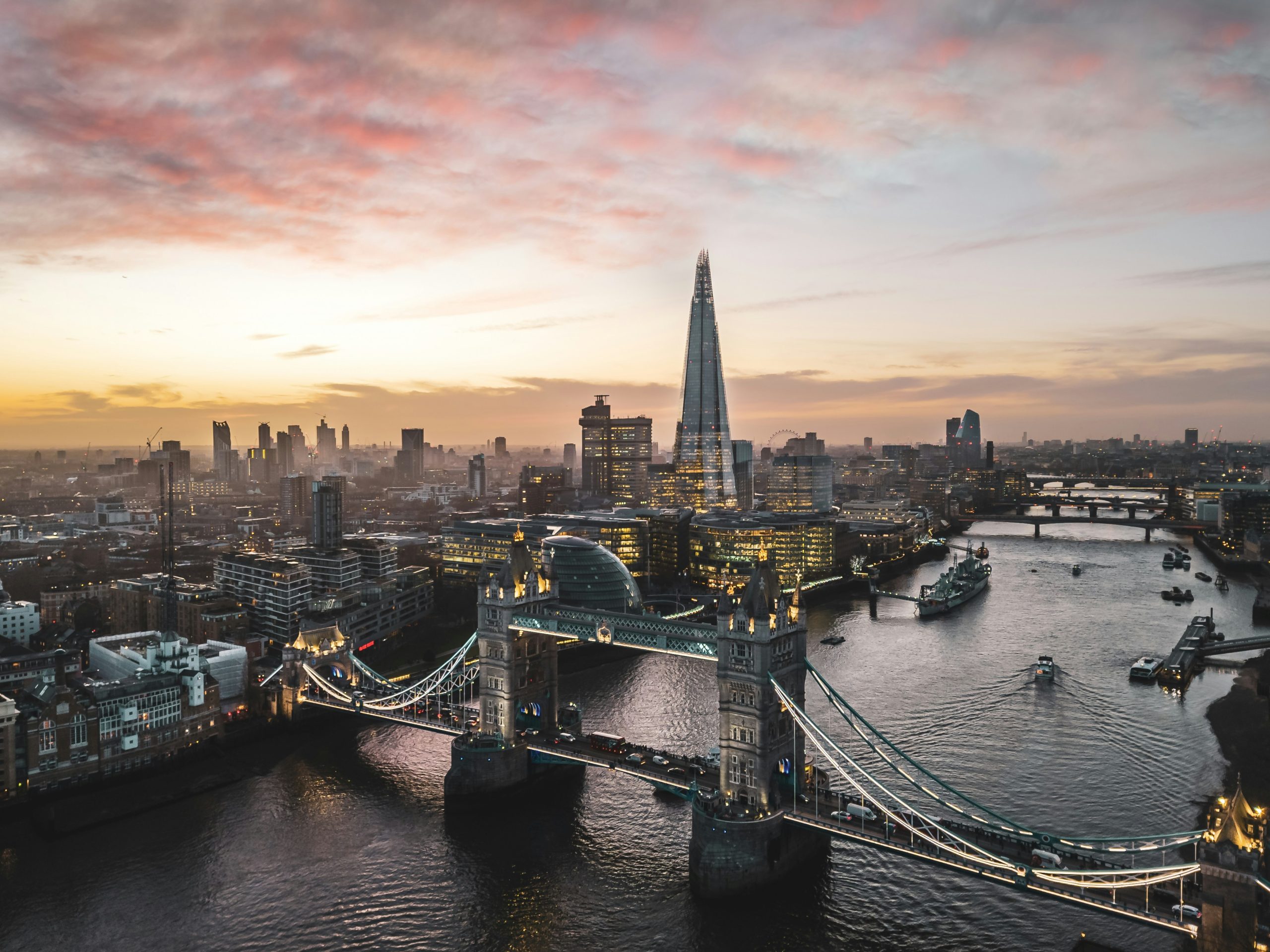Football
Wildfire risk: London prepares for climate change blazes
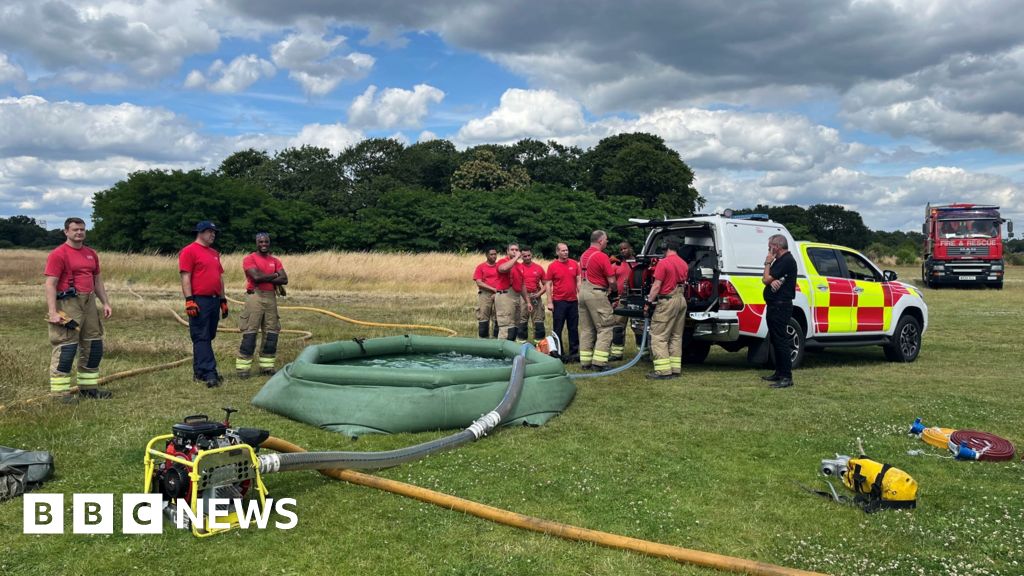
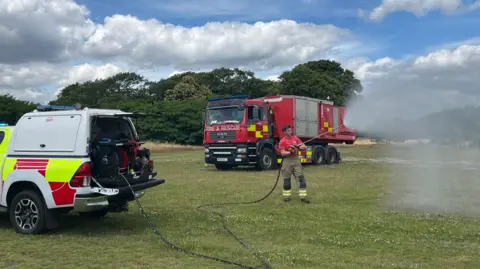 LFB
LFBWildfires that broke out in the summer of 2022 were a clear indication of the “threat, risk and challenge” brought by climate change, fire chiefs have said.
The London Assembly fire committee hosted a series of panels to find out whether the preparedness of the London Fire Brigade (LFB) has improved since it faced its “busiest day since World War Two”.
The service responded to more than 350 incidents on 19 July – a day described by one fire boss as “a genuine watershed moment for the LFB and London as a whole”.
A review of the response found staff shortages and the unavailability of personal protective equipment hampered the brigade’s work.
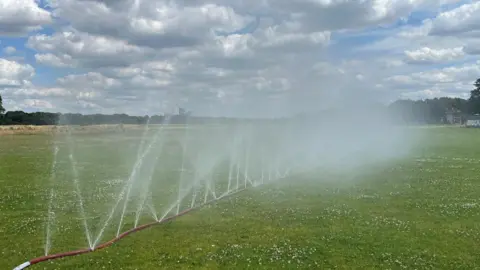 LFB
LFBThe deputy commissioner and operational director for preparedness and response at the brigade, Jonathan Smith, said global warming created “a clear and present risk” and improvements were “absolutely driven” by the experience of July 2022.
The measures include four new vehicles with off-road capabilities and technology that allows firefighters to pump water while driving.
They will be kept at different locations across the city, ready to respond to grass fires and wildfires in the capital.
All firefighters have received enhanced training for wildfires and 30 senior officers have been trained as specialist wildfire support officers, to be deployed as tactical advisers.
The welfare of operational crews working in hot weather conditions was identified as a priority, and firefighters have been provided with additional hydration packs, sun cream and headgear for personal protection while dealing with an incident.
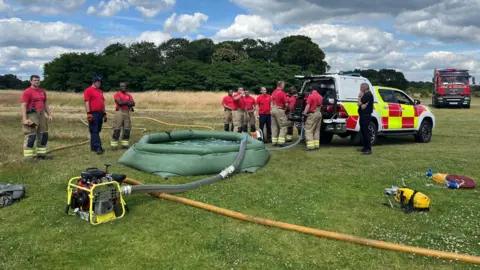 LFB
LFBA special “holey hose” has also been added to the brigade’s equipment, which creates a “curtain of water” reaching up to two metres high.
The hose can be deployed to stop the spread of fire across land.
Fire experts from Spain and Finland also spoke to the committee, sharing their experiences of working in high temperatures and densely forested land.
Every local authority in London has received a letter from the brigade urging them to help prevent wildfires by creating fire breaks and managing vegetation, particularly where rural areas back on to properties.
Assistant commissioner Keeley Foster said: “Preparedness and prevention is essential in helping to reduce the risk to our communities to prevent grass fires.
“That means not having barbecues in open spaces or on balconies, throwing rubbish away safely, not leaving broken bottles or glass on the ground, and disposing of cigarettes properly.”








